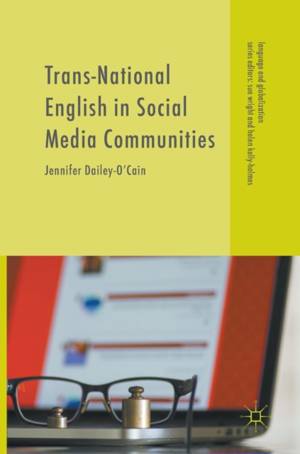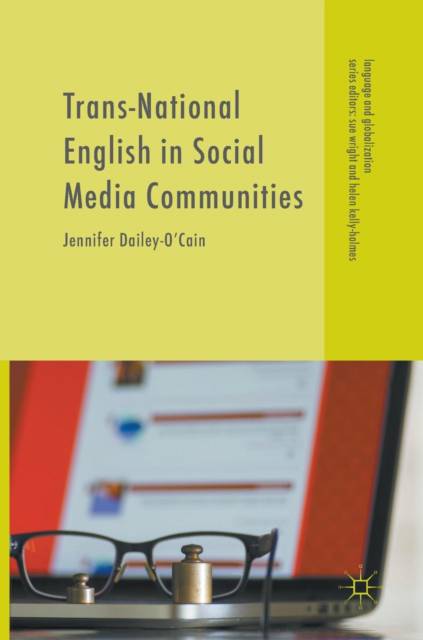
- Afhalen na 1 uur in een winkel met voorraad
- Gratis thuislevering in België vanaf € 30
- Ruim aanbod met 7 miljoen producten
- Afhalen na 1 uur in een winkel met voorraad
- Gratis thuislevering in België vanaf € 30
- Ruim aanbod met 7 miljoen producten
Omschrijving
This book explores the use of English within otherwise local-language conversations by two continental European social media communities. The analysis of these communities serves not only as a comparison of online language practices, but also as a close look at how globalization phenomena and 'international English' play out in the practices of everyday life in different non-English-speaking countries. The author concludes that the root of the distinctive practices in the two communities studied is the disparity between their language ideologies. She argues that community participants draw on their respective national language ideologies, which have developed over centuries, but also reach beyond any static forms of those ideologies to negotiate, contest, and re-evaluate them. This book will be of interest to linguists and other social scientists interested in social media, youth language and the real-world linguistic consequences of globalization.
Specificaties
Betrokkenen
- Auteur(s):
- Uitgeverij:
Inhoud
- Aantal bladzijden:
- 315
- Taal:
- Engels
- Reeks:
Eigenschappen
- Productcode (EAN):
- 9781137506146
- Verschijningsdatum:
- 25/09/2017
- Uitvoering:
- Hardcover
- Formaat:
- Genaaid
- Afmetingen:
- 148 mm x 210 mm
- Gewicht:
- 539 g

Alleen bij Standaard Boekhandel
Beoordelingen
We publiceren alleen reviews die voldoen aan de voorwaarden voor reviews. Bekijk onze voorwaarden voor reviews.











